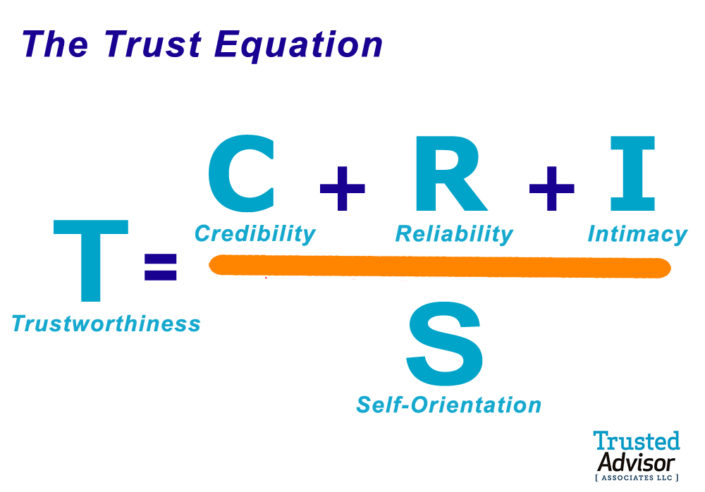Rapport

What is Rapport?
Have you ever met someone and instantly felt at ease, as if you'd known them for years? That's rapport at work. It's the invisible thread that connects people, making conversations flow and relationships blossom. Imagine you're at a coffee shop and you share a laugh with the person next to you over a funny mix-up in your orders.
That moment of connection? That's the essence of rapport.
Rapport is like a secret sauce that makes interactions smoother and more enjoyable. It's not just about being nice; it's about creating a mutual vibe of understanding and trust. Think of it as a dance where both people are in sync, moving together in harmony. For example, when a teacher connects with a student over a shared interest in music, their discussions become more than just academic—they become meaningful conversations that foster a deeper connection.
Why Rapport Matters
Building rapport can turn a simple chat into a strong connection. It's the foundation of friendships, effective teamwork, and even successful business negotiations.
For instance, a salesperson who remembers a client's hobbies and asks about them genuinely can create a bond that goes beyond just business. This doesn't just make interactions more pleasant; it opens doors to better understanding and cooperation.
Exploring different contexts like work, friendships, and family helps illustrate the universal importance of rapport in fostering harmonious and productive relationships:
Work:
In a professional setting, rapport can be the key to successful teamwork and effective communication. For example, consider a project team facing a tight deadline. When team members have built a good rapport, they're more likely to communicate openly, share ideas freely, and support each other, leading to a more collaborative and innovative solution.
A manager who takes the time to understand the individual strengths and challenges of each team member can create a work environment where everyone feels valued and motivated, ultimately enhancing productivity and job satisfaction.
Friendships:
Rapport is the foundation of any strong friendship. It's built through shared experiences, trust, and mutual respect. For instance, two friends bonding over a shared hobby, like cycling, can deepen their connection by encouraging each other, sharing tips, and enjoying long rides together.
This shared passion not only strengthens their friendship but also provides a supportive space where both individuals can thrive. When friends have a strong rapport, they feel comfortable sharing personal thoughts and feelings, knowing they'll be met with understanding and empathy.
Family:
Within the family context, rapport contributes to a nurturing and supportive environment. Consider a parent-child relationship where the parent makes an effort to engage in activities the child enjoys, whether it's playing video games together or attending sports events.
This not only shows the child they are valued and loved but also strengthens the emotional bond between them, making it easier to navigate challenges and communicate effectively. In family settings, rapport fosters a sense of belonging and security, which is crucial for emotional well-being.
In each of these contexts, rapport acts as a bridge that connects individuals, allowing them to understand and support each other better. Whether in the workplace, among friends, or within families, rapport enhances relationships, making them more fulfilling and resilient.
Signs of Strong Rapport
You can tell when rapport is strong without anyone having to say a word. It's in the comfortable silences, the shared smiles, and the way people mirror each other's body language. When two friends laugh in unison or a couple unknowingly matches their steps as they walk, rapport is at play. But if conversations feel strained or if body language is closed off, it's a sign that rapport needs a bit more work.
Building Rapport: Practical Tips
So, how do you build rapport? Start by really listening to what others are saying and show that you care about their thoughts and feelings. Ask open-ended questions that encourage them to share more about themselves. Finding common ground is key—maybe you both love hiking or are fans of the same TV show. Remember, being genuine is crucial; people can tell when you're just pretending to be interested.
Rapport in the Digital Age
In today's world, we often connect through screens, which can make building rapport a bit trickier. But it's not impossible. Even in emails or video calls, you can show empathy and understanding. Pay attention to the tone of your messages, use emojis wisely to convey warmth, and on video calls, make sure to maintain eye contact and show active engagement. These small gestures can bridge the digital divide and create a sense of closeness.
Rapport in Marketing
Rapport is not just a nice-to-have; it's a crucial element that can significantly impact the success of marketing strategies and campaigns. Establishing rapport with potential customers helps create a sense of trust and familiarity, making them more receptive to marketing messages and more likely to engage with a brand. This connection goes beyond mere transactions; it fosters loyalty and long-term relationships, which are invaluable in today's competitive market.
One key concept that aligns closely with rapport in marketing is the Trust Equation, famously worked out by Trusted Advisor. This formula for measuring trustworthiness highlights the components that contribute to building and maintaining trust in professional relationships. The Trust Equation consists of credibility, reliability, intimacy, and self-orientation, represented as
 Source: Trust Advisor
Source: Trust Advisor
In marketing, these elements translate into how brands communicate their expertise (Credibility), consistently deliver on their promises (Reliability), create personal connections with customers (Intimacy), and prioritize customer needs over their own sales goals (Self-Orientation).
-
Credibility in marketing can be established through knowledgeable content, expert endorsements, and evidence of industry experience. For instance, a brand that consistently publishes insightful blog posts, case studies, and research reports can build credibility in its field, making potential customers more likely to trust its products or services.
-
Reliability is demonstrated through consistent brand messaging, dependable product quality, and timely customer service. A company that always delivers on its promises, from the quality of its products to its after-sales support, reinforces its reliability, strengthening customer rapport and trust.
-
Intimacy involves creating a personal connection with the audience. This can be achieved through personalized marketing efforts, such as tailored email campaigns, responsive social media interactions, and understanding customer needs and preferences. When customers feel understood and valued on a personal level, they are more likely to develop a strong rapport with the brand.
-
Self-Orientation minimizing means showing customers that their needs and interests are the brand's top priority. This could involve offering valuable information without a hard sell, focusing on how products or services solve customer problems and engaging in ethical marketing practices that put customer well-being first.
Incorporating the Trust Equation into marketing strategies can help brands build a strong rapport with their audience, establishing themselves as trusted advisors rather than just vendors.
This approach not only enhances customer loyalty but also drives engagement, referrals, and ultimately, business success. By focusing on trustworthiness and rapport, marketers can create more meaningful connections with their audience, leading to more effective and impactful marketing outcomes.
Rapport is the glue that holds our social world together. It turns acquaintances into friends and makes teamwork more effective. By being attentive, showing empathy, and finding common interests, we can build stronger, more meaningful connections in every area of our lives.
So, next time you're chatting with someone, whether face-to-face or online, remember the power of rapport and watch how it transforms your interactions.




